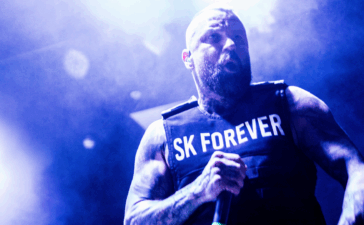Major labels are pushing back on Cox’s Supreme Court appeal against billion-dollar music piracy lawsuit, calling its internet access warnings “overblown.”
Three of the biggest record labels in the world are asking the US Supreme Court to uphold a billion-dollar piracy lawsuit against Cox Communications, rejecting the company’s claim that the ruling could lead to millions of people being unfairly kicked off the internet.
Universal Music Group, Sony Music Entertainment, and Warner Music Group filed a brief on Wednesday (Oct. 15) arguing that Cox’s warnings were exaggerated and misleading. The labels accused the broadband provider of trying to distract the court by invoking “innocent grandmothers” and hospitals in its defense.
“While Cox waxes poetic about the centrality of internet access to modern life, it neglects to mention that it had no qualms about terminating 619,711 subscribers for nonpayment over the same period,” the filing reads. “And while Cox stokes fears of innocent grandmothers and hospitals being tossed off the internet for someone else’s infringement, Cox put on zero evidence that any subscriber here fit that bill.”
The case dates back to 2018, when the labels sued Cox for failing to address large-scale music piracy by its customers. They argued that the company ignored hundreds of thousands of copyright infringement notices and refused to permanently terminate repeat offenders. In 2019, a Virginia jury found Cox liable for 10,017 instances of infringement, ordering the company to pay the labels more than $99,000 per song – for a grand total of over $1 billion.
While internet service providers are typically protected under the Digital Millennium Copyright Act (DMCA), a judge ruled that Cox lost that protection by refusing to act against repeat infringers. A federal appeals court later ordered parts of the verdict recalculated but left the liability ruling in place, keeping Cox on the hook for a massive payout.
Cox asked the Supreme Court to intervene, and in August argued that the decision could “jeopardise internet access for millions” and force providers to disconnect entire households, hospitals, or military barracks based solely on accusations of piracy. The US Department of Justice echoed those concerns earlier this year, urging the justices to take up the case.
The record labels, however, dismissed Cox’s arguments as “breathless” and claimed the company knowingly ignored its responsibilities to protect artists’ work. “Cox made a deliberate and egregious decision to elevate its own profits over compliance with the law,” they wrote, accusing the company of providing “the means for massive copyright infringement to specific users that it knew were habitual offenders.”
The Supreme Court is expected to hear arguments in the coming months, with a decision likely to arrive early next year.










